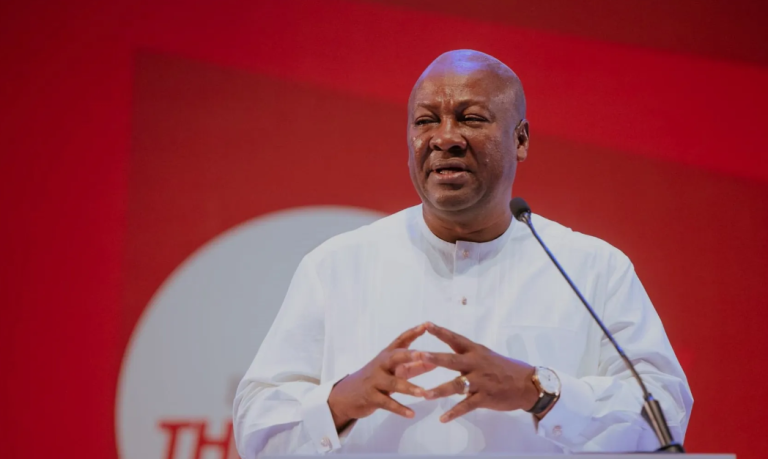FORMER President John Mahama, the National Democratic Congress (NDC) flag bearer for the 2024 presidential elections, engaged media persons this past Sunday.
The event lasted three hours, during which time he answered questions on several topics relevant to the elections and more importantly on how the country can continue to move its development needle forward.
I watched the entire event and listened as he carefully answered every single question that was posed to him. Here are my key reflections on three of the many issues the former president responded to.
Points of Reflection
The 24-hour economy. The central economic growth and job creation idea of his campaign is the 24-hour economy.
As I wrote in November 2023, job creation has been the number one policy priority of Ghanaians, but also the area least rated in terms of government performance as per nine rounds of the Afrobarometer survey.
In two election surveys this year (Global Info Analytics and Prof. Sarpong’s baseline study), unemployment has emerged as a top concern for voters. The 24-hour economy proposal is, therefore, worthy of consideration as one alternative to spur economic growth and create jobs.
There is a Frequently Asked Questions (FAQ) document that helps explain it. However, it was important the presidential candidate articulated once again a single coherent narrative of what the proposal seeks to do. In the most recent polling data available (Global Info Analytics, July 2024), the idea had lost six percentage points since April 2024 as an influential election slogan.
I attribute that to challenging moments certain persons within the party have faced in explaining the proposal.
Office of the Special Prosecutor
The conventional wisdom is that Attorney Generals, being part of the government, are unable to bring cases of corruption against members of their own government.
To successfully fight corruption and especially ensure in-regime accountability, the current government created the Office of the Special Prosecutor in response. The jury is still out on the seven-year history of the office and the extent to which it has succeeded in fighting corruption.
In addition, the first two Special Prosecutors have faced challenges, with the first resigning after two years, and the second surviving a removal petition. These incidents have certainly raised concerns about the office.
In addition, being an institutional creation of his political opponents, it can be very tempting to rethink the importance of the office. The former president committed to retaining the office if elected. This is how nations build strong and durable institutions.
Free SHS
When the former president was asked about Free SHS, he expressed his commitment to it, acknowledging that the programme is here to stay. He also reiterated his position on addressing the implementation challenges.
His public acknowledgement corrects a narrative that his regular calls for a review meant if elected he will cancel the programme. The answer was, however, stained by asserting his government started the Free SHS programme.
Granted, his government rolled out a Progressive Free SHS programme during the 2015-16 academic year, targeted at day students and covering a selected number of fees.
However, the comprehensive and encompassing nature of the current programme makes the two very different. More importantly, because of past Free SHS political rhetoric by the NDC, the former president’s answer, with all due respect, should have been restricted to his commitment.
The ensuing debate and resurrection of past political statements have detracted from the vital takeaway of his answer – a recognition that the programme is here to stay and his commitment to it.
Media engagements come with risks. One is never sure the question(s) to expect, especially if it is the kind where the media persons are not handpicked to create a friendlier and safe environment. In addition, one must be able to “think on their feet.”
As a presidential candidate, the worst thing that can happen in a media engagement is to respond in ways that raise questions about your suitability for the highest office of the land.
John Mahama, fully aware of this, took the bold step to engage the media. Even more commendable was the three hours spent answering every single question. And when prompted by Sammy Gyamfi towards the end that answers to two questions were missed, he quickly made amends.
The other commendable thing about this engagement is the fact that because it was broadcast live across various traditional and social media channels, it allowed voters to hear directly from the candidate in an unfiltered way.
The party promised this was not a one-off event. Hopefully, other candidates will emulate this. If we cannot have a presidential debate between the candidates, this may be an acceptable alternative.
The writer is the Project Director, Democracy Project.
Source: graphic.com.gh




